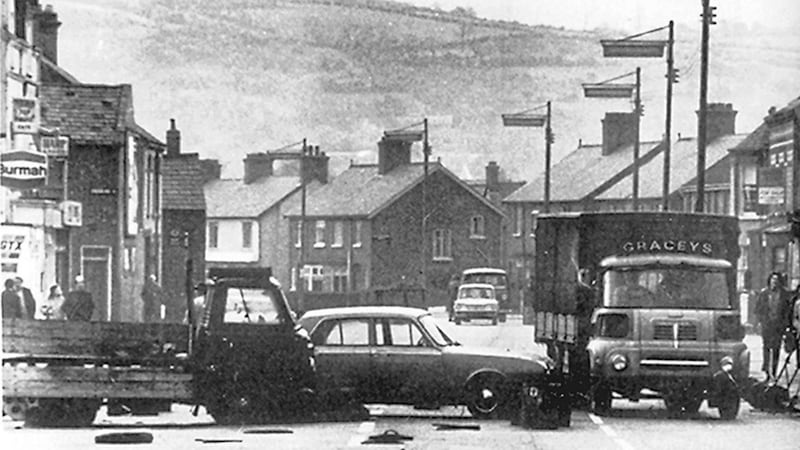Questions remain around the investigation into an IRA blast which killed a young female police officer, the DUP leader has said.
Constable Colleen McMurray (34) was in a police car which was hit by an IRA mortar bomb as it travelled along Merchants Quay in Newry on March 27, 1992.
She suffered serious injuries and died in hospital, while another officer who had been driving the car suffered life-changing injuries
No-one has ever been found responsible for the attack.
An investigation by the Police Ombudsman found that while the RUC could not have prevented the bombing, there were investigative failures.
DUP leader Sir Jeffrey Donaldson said the need for answers is “unquestionable”, adding he understands the family want a judge-led inquiry.
He described a “brutal PIRA murder which robbed a family of their daughter and a husband of his wife”.
He added: “The need for answers is unquestionable given what both families have endured.
“I welcome the report being published but recognise that further questions remain.
“Whilst the Ombudsman has found that the RUC could not have prevented the attack, there are questions to be answered around how the subsequent investigation was handled.
“I understand the family calling for a judge-led inquiry. The decision to choose only some cases for inquiries was a mistake by successive governments. Why was one murder deserving of such scrutiny but another not?
“This report reminds us that terrorists remain at large in our community. People who took life and left victims with life-altering injuries. It is therefore another reminder of why victims’ access to justice must never be closed down.”
Earlier this week, Police Ombudsman Marie Anderson found no evidence that officers were in possession of information which, if acted upon, could have prevented the attack.
However the Ombudsman found police failed to disseminate intelligence about a police informant amid other investigative failings.
Mrs Anderson identified that RUC Special Branch did not provide colleagues with information about people it suspected were in the IRA and may have been involved in the attack.
She said this had the effect of undermining the RUC investigation, with several people never being treated as suspects.
Ms McMurray’s husband Philip welcomed the report but said it does not go far enough.
“It is clear that Special Branch held intelligence on key suspects involved in the murder of Constable McMurray,” he told the Belfast Telegraph.
“The Police Ombudsman’s report only focused on informant and state agent ‘Person A’, whilst other suspected state agents were brought to the attention of the Police Ombudsman.
“Why was the intelligence not shared or subjected to a slow waltz dissemination to CID investigators? The family are of the view, because of collusion between the Provisional IRA and British state, this is politically difficult for both the Provisional IRA and the British state to allow to be investigated.
“Constable McMurray was murdered by the PIRA assisted by the British Government, and we, the family of Constable McMurray, strongly contend that her murder could have been prevented.
“The current chief constable cannot be trusted with the investigation into the murder of Constable McMurray because the murder of Constable McMurray involves collusion with republican terrorists and this type of collusion will not be allowed to be investigated, as investigative leads may lead to Stormont and the destabilisation of Government and therefore is not in the national interest.”
Responding to the report, PSNI Assistant Chief Constable Mark McEwan said he was “truly sorry” for “shortcomings in the handling of information and the subsequent police investigation”.
He added: “As we have previously stated the practice and policies that govern intelligence matters and police investigations today are unrecognisable from what was in place at the time of the attack. I acknowledge the fact that the Ombudsman has recognised this in her report.
“I also acknowledge that the Ombudsman has recognised the operating context at the time; the lack of a legislative framework and the operational dangers faced by police officers serving their community.
“Sadly it remains the case that no person has been brought to justice for this terrible crime and today, with the publication of the Police Ombudsman’s report, details of this brutal attack are fresh in people’s minds, I would make a renewed appeal for the people who know who did this to come forward to us with information.”






